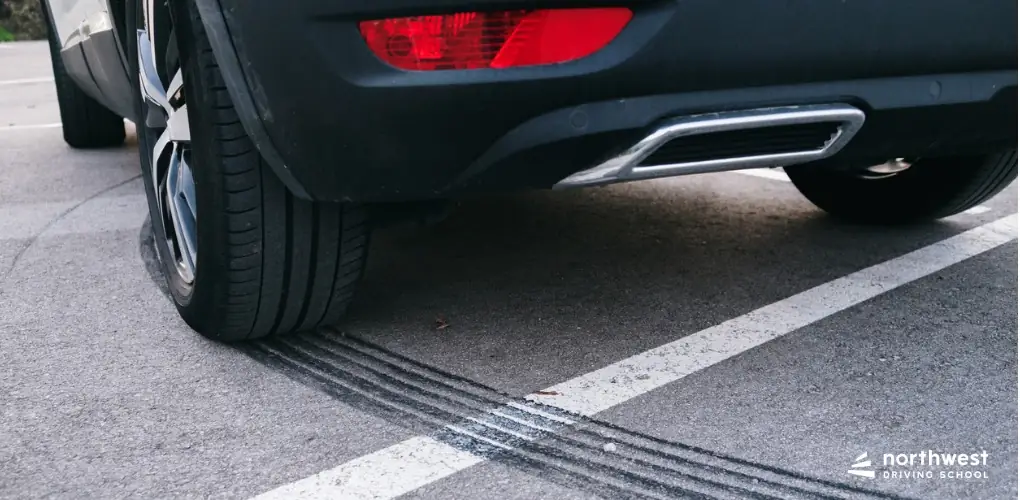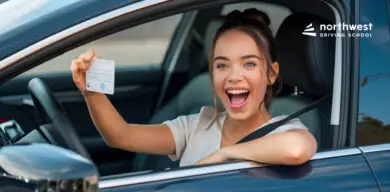- Driving School
Braking – How To Do It Properly And Stay Safe

Braking is not just a skill; it’s a responsibility. As a learner driver, mastering when and how to brake is crucial for your safety and the safety of others on the road. But it’s not just about safety; there are other benefits to learning how to brake appropriately. By gaining control over your braking, you empower yourself to navigate the roads with confidence and safety.
By fine-tuning your braking skills, you can significantly extend the lifespan of your vehicle. Efficient braking reduces wear and tear, which means fewer trips to the mechanic and more money in your pocket. This guide will not only equip you with practical tips to enhance your skills but also show you how efficient braking can be a smart financial move, giving you more reasons to master this skill.
Read More: Manual Versus Automatic Driving: The Pros And Cons
What Are The Benefits Of Efficient Braking?
Other than making sure you don’t run your car into a lamppost, there are several other benefits to make sure you are using your brakes effectively, including:
- Better fuel efficiency: Harsh braking means downshifting to recover from lost momentum. When you shift down, your engine increases its revs (revolutions), which uses more fuel. You’ll also need to accelerate to recover the momentum you lost when you jammed on the brakes, which uses yet more fuel. In short, unless you want to make your wallet deeply sad the next time you pull into the gas station, it pays to ease up on the brake pedal.
- Reduced maintenance: Every time you stamp on the brakes, you’re increasing the wear and tear on parts of your vehicle, like your brake pads and tires. The more you find yourself braking unnecessarily hard, the quicker you’ll need to replace those parts. Combined with the additional fuel cost associated with harsh braking, your heavy foot could significantly impact your bank balance if you’re not careful.
- Increased road safety: Sudden and harsh braking, as with sudden changes in direction or speeding, represents a loss of control over your vehicle. Learning when and how hard to brake means you’re always in better control of your car. The more in control you are, the safer you, other drivers, and pedestrians are on the road.
As you can see, several compelling reasons exist to master efficient braking. It reduces your fuel and maintenance costs and keeps you and other drivers safe.
Improving Your Braking Skills
Now that we’ve underlined how important efficient braking is to both your wallet and your safety, how do you go about improving your braking technique?
As expert driving instructors, we’ve put together a list of easy-to-implement tips and tricks that will help you become a master of the brake pedal!
Work On Your Awareness
The first step in cutting down on the amount of heavy breaking you need to do is to increase your awareness of what’s happening around you. Good observation skills are required to pass your driving test, and they remain valuable once you hit the road on your own. Knowing what potential hazards you might face on the road in front of you allows you to moderate your speed and be ready to brake in a controlled manner.
Here are some of the more common hazards that it pays to pay attention to:
- Roadworks: A common sight on most roads, roadworks can involve traffic backing up, temporary traffic lights, and sudden detours. Spotting the signs indicating roadworks early and being prepared to brake to adapt to changes in the route ahead can prevent you from stomping on the brake pedal later.
- Road signs: Road signs are there to give you an early warning about changes in the road conditions ahead, so making sure you are looking for them and absorbing what they are trying to tell you is paramount.
- Changes in weather conditions: Sudden changes in weather conditions, such as icy patches on the road, heavy rain, snow, or fog, can be extremely hazardous. Sudden braking on a slippery road can result in you losing control of your vehicle, so noting the warning signs and reducing your speed can keep you and other drivers safe.
- Visibility: As with changing weather conditions, sudden visibility changes can cause you to brake. Weather like fog, sleet, sudden rain, or changes in the road, like blind corners, humpback hills, or hedge rows, can significantly reduce visibility. Adapting your driving style to the current level of visibility by slowing down and keeping a greater distance between you and other drivers can prevent you from needing to brake suddenly.
Stick To The Speed Limit
Speed limits are there to keep you and other road users safe. The faster you’re going, the less time you have to react to pedestrians walking out onto the road, cars suddenly turning, braking, or stopping, animals running across in front of you, and many other common road hazards.
If you’re sticking to the speed limit, especially in urban areas, you should have plenty of time to apply the brakes smoothly. Pay special attention to places where the speed limit might suddenly change, such as school zones.
Keep the correct stopping distance
Do you know your car’s stopping distance? Most people don’t. The exact distance changes depending on your vehicle’s weight, the state of your tires, and the road surface. The 2-second rule is a good starting point, but researching your own car’s stopping distance and making sure you put it into practice is hugely important.
If you’re the correct distance from the car in front of you and pay attention to what the drivers around you are doing, you should have plenty of time to brake efficiently rather than slamming on the brakes.
Master The Art Of The Brake Pedal
Efficient and effective braking is a critical skill to learn as a driver. It saves you money and keeps you safe. Of course, the best way to learn how to master the proper braking techniques is to practice, and there’s no better way to learn than with the experts at NorthWest Driving School.
If you’re struggling with your braking technique and want to ensure you pass your test the first time, contact us today to book your lessons.




